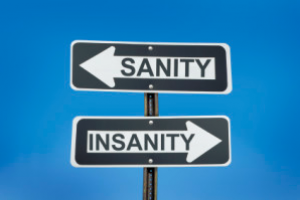Should NH require a medical diagnosis of mental illness for a plea of insanity?

On Wednesday, a federal judge said John Hinckley, Jr., who attempted to assassinate President Ronald Reagan, would be released to live with his elderly mother in Virginia.
In 1982, the verdict that sent Hinckley to a government psychiatric hospital as opposed to prison sparked a national debate that resulted in tighter legislation regarding the use of the insanity defense.
In NH, the Durham Product Rule is used as the test to determine the mental state of a defendant at the time of an incident if he/she uses the insanity defense. According to the Durham Product Rule, a criminal defendant cannot be convicted of a crime if the act resulted from a mental disease or defect at the time it took place.
Opponents argue that the rule is too broad, as NH juries must define a mental illness for themselves, whereas juries in other states are provided with a description of what constitutes insanity. They also express concern that the rule does not require a medical diagnosis of mental illness or disorder.
Supporters counter that New Hampshire courts have tightened the rule's use through the years and claim a strict burden of proof is on the defendant. They cite the fact that it has been many decades since an insanity defense has been successful as proof.
First adopted in 1871, NH is the only state that uses the Durham Product Rule. There is no current effort underway to reevaluate NH's use of the rule.











Comments
Login or register to post comments